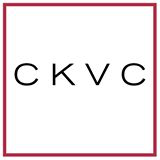The most common exemptions to state and federal overtime laws are known as the “white collar exemptions,” and include the executive, administrative, learned professional, and creative professional exemptions. In order to qualify for one of these exemptions, an employee must pass the “salary test” and the “duties test.” Click here for more information on the “duties test” and also for examples of the types of employees that typically fall into one of the “white collar exemptions.” Employees who pass these two tests are not entitled to overtime.
As we explained here, the United States Department of Labor had approved regulations increasing the “salary test” threshold from $455/week to $913/week. As explained here, on November 22, 2016, a judge in Texas, in response to a suit brought by 21 states, blocked the implementation of the DOL’s regulations. As a result, currently an employee can pass the salary test under federal law, and most state laws, if he or she is paid a salary of at least $455/week.
That is not the case for New York employees. Effective January 1, 2017, New York employees will satisfy the executive or administrative exemptions only if they are paid amounts ranging from $727.50/week to $825/week, depending on their location and the employer size. Those amounts increase every year. As a result of these changes, a New York employee paid a salary of $455/week may be considered exempt from overtime under the federal Fair Labor Standards Act but entitled to overtime under New York law. The New York changes do not apply to the creative professional or learned professional exemptions.
Please contact us if you would like more information on how to determine if someone is or is not entitled to overtime.

